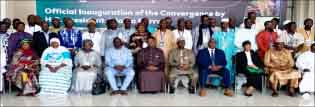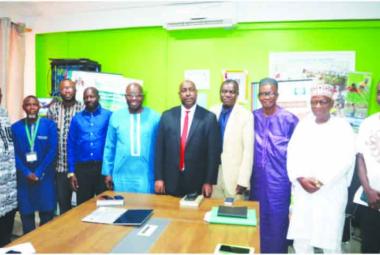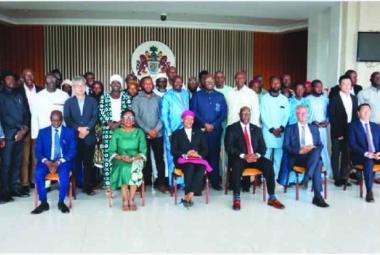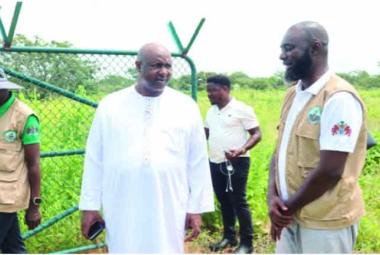By Fatou B. Cham
The Ministry of Agriculture in collaboration with stakeholders on Saturday, September 2nd concluded a two-day National Rice Forum and Policy Dialogue held at the Sir Dawda Kairaba Jawara International Conference Centre.
The objective of the National Rice Forum and Policy Dialogue was to develop a road map for achieving sustainable rice self-sufficiency in The Gambia by 2030.
The specific objectives are to identify critical issues that need to be addressed to achieve sustainable rice self sufficiency, identify key rice sector stakeholders and their responsibilities along the rice value chain, and identify timelines for data provision and collection, as well as establish a task force for progress monitoring.
Speaking at the opening ceremony, Hon. Dr. Demba Sabally, Minister of Agriculture affirmed that the forum was to identify bottlenecks hindering efforts to attain rice self-sufficiency and propose solutions to address the challenges identified.
“Local rice production has been given a top priority in our government’s National Development Plan (NDP). To ensure national rice self-sufficiency and food sovereignty is achieved in the shortest possible time, a continental investment plan for rice self-sufficiency in The Gambia called CIPRiSSA-Gambia was commissioned, through technical support from the Africa Rice Centre, to assess the rice productive capacity of our nation and determine the investment required to achieve rice self-sufficiency by 2030,” he said.
According to the Honorable Minister, the government of H.E President Adama Barrow has initiated several strategic policies and programs and commissioned projects to improve in country rice production.
“Under this new dispensation, two specific rice value chain projects i.e., Rice Value Chain Transformation Project (RVCT) and the Regional Rice Value Chain Development Project (RRVCDP) were commissioned,” he mentioned.
Hon. Sabally informed the gathering that the government is also supporting private sector development initiatives along the rice value chains. Notable among them is the Marou Farms, Salifu Mallow and Family, MiRA Farms, Burong Wolal among others. Off recent in fact 48hours ago to be precise, the government of the Gambia and its development partners have disbursed over 4million USD equivalent to 256million Gambian dalasis to private sector players in our Agri-food systems.
For his part, Dr. Baboucarr Manneh, Director General AfricaRice, stated over the last decade, many African countries registered good progress in increasing local food production especially of rice which is the main staple food of many West African countries.
However he added that the overall food security outlook in Sub Saharan Africa is quite worrisome considering the compounding effects of the rapidly increasing population, climate change and the highly volatile world food markets. The COVID-19 pandemic and the effects of the Russo-Ukrainian war have alerted us to the urgent need to strive for food sovereignty in Africa.
Also speaking at the opening ceremony, Moshibudi Rampedi, FAO Country Representative reported that rice is a staple food crop in The Gambia, with an annual per capita consumption estimated at 117 kg or 320g daily per person. Thus; she indicated that more needs to be done to meet household and national food requirements.
She however stressed that the rising levels of rice imports is not sustainable and does come at a cost to the nation.
“We need collective action to monitor and evaluate execution of policies and strategies, learn from other rice producing nations, identify and address challenges and support family farmers,” FAO Country Rep recommended.






